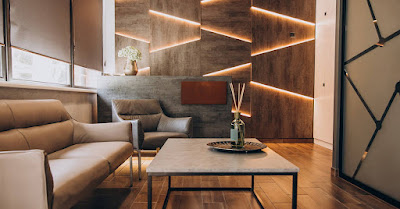Empowering Structures: The Reinforcing Power of ACP Sheets
Aluminium composite panel popularly known as acp sheets are sandwich panels. It includes three layers with the core material made of polymer material and the exterior ones with aluminium sheets. Due to the high durability, flexibility, and cost-effectiveness of the material it has become one of the most popular cladding solutions in the architectural and designing industry. The tremendous strength of the ACP is another big factor in its growing demand in the market.
So, what are the factors that add to the strength of the ACP? Let’s find out,
What Are the Components of ACP?
To understand the structural strength of aluminium composite panels, it is important to understand their composition. As already mentioned, it is mostly made of three layers, with a polymer layer in between and aluminium sheets on top and bottom. Aludecor’s ACP sheets comprise seven layers, protecting firm, pain coating, pre-treatment, Aluminium sheet, FR (Fire Retardant) core, Aluminium sheet, and paint coating.
The core strength of the panels is mostly derived from aluminium sheets that come on the top and bottom of the panel helping in acoustic insulation. On the other hand, the fire protection comes from the non-combustible core that stops the fire from spreading. The paint coating which goes on top of the aluminium panel prevents the sheet from environmental aggression and corrosion. These layers when comes together make the exterior acp sheet an excellent cladding and designing material.
How ACP Provides Strength to A Structure?
The integrity of a building structure mostly depends on the factors like flexibility, anti-corrosion, fire resistance, and thermal resistance. Let’s take a look at how ACP provides these benefits to a building making it one of the most popular cladding materials.
Flexibility
One of the primary reasons for ACP sheets to provide strength to a structure is its flexibility. The sheets are seamlessly bent to shape or size as per requirement. As the application of exterior acp sheet is vast including cladding, partitions, signage, and doors, being flexible is a must. The ACP is usually bent using a Press Brake Machine to get the required shape or radius. Alongside the flexibility, interior acp sheet is lightweight too which adds to the flexibility adding to the structural integrity of the building it is used in.
Anti-corrosion
ACP sheets are most commonly used as an exterior fabrication material in applications like signage, partition, elevation wall or simply cladding. Due to this reason, the acp sheets are primarily exposed to weather and environmental aggressors like rain, heat, and snow. As a result, direct contact with water and moisture for a prolonged time can lead to damage to the aluminium sheet.
Most of the ACP sheets are made moisture-resistant to ensure that they are not affected by these weather conditions. This feature adds the benefit of anti-corrosion giving it a long life making it a cost-effective option for cladding. To sum it up, the moisture insulation property of the aluminium composite panels makes it long-lasting while adding to the strength of the complete structure.
Fire Resistance
ACP sheets have the ability to resist fire adding to the durability of the material. Most of the exterior or interior acp sheet can resist fire of up to 2 hours. The fire resistant quality of the ACP comes from its core that are made with 70 to 90 percent inorganic material that are naturally fireproof. The core material ensures that the fire does not spread and damage the integrity of the panels adding to the overall strength of the building.
Thermal Resistance
The MFR installation system of exterior acp sheet allows the top and bottom parts to remain open creating an air cavity for proper air circulation. This resists the heat from outside to get trapped inside the cavity and getting absorbed through the walls of the building preventing overheating. This in turn helps in maintaining ideal temperature during summer and winter. Moreover, the aluminium composite panels come with PVDF/FEDE coating that has high grade of thermal resistance increasing the durability.
Conclusion
When you are choosing ACP for exterior cladding, it is ultimately adding to the structural integrity of the building. It is creating a barrier against, heat and rain which are the main causes of heating and corrosion that damages the structural integrity.




Comments
Post a Comment